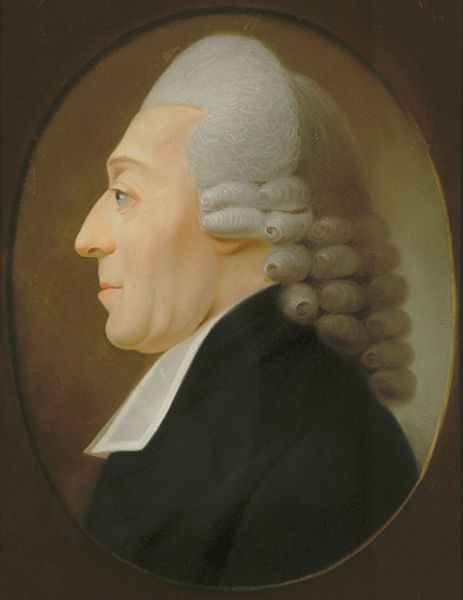|
Limmenius
''Limmenius'' is a genus of tardigrades with one species, ''Limmenius porcellus''. References External links * A specimen of ''Limmenius porcellus''at the Museum of New Zealand The Museum of New Zealand Te Papa Tongarewa is New Zealand's national museum and is located in Wellington. ''Te Papa Tongarewa'' translates literally to "container of treasures" or in full "container of treasured things and people that spring fr ... Apochela Tardigrade genera Monotypic protostome genera {{Tardigrade-stub ... [...More Info...] [...Related Items...] OR: [Wikipedia] [Google] [Baidu] |
Genus
Genus ( plural genera ) is a taxonomic rank used in the biological classification of extant taxon, living and fossil organisms as well as Virus classification#ICTV classification, viruses. In the hierarchy of biological classification, genus comes above species and below family (taxonomy), family. In binomial nomenclature, the genus name forms the first part of the binomial species name for each species within the genus. :E.g. ''Panthera leo'' (lion) and ''Panthera onca'' (jaguar) are two species within the genus ''Panthera''. ''Panthera'' is a genus within the family Felidae. The composition of a genus is determined by taxonomy (biology), taxonomists. The standards for genus classification are not strictly codified, so different authorities often produce different classifications for genera. There are some general practices used, however, including the idea that a newly defined genus should fulfill these three criteria to be descriptively useful: # monophyly – all descendants ... [...More Info...] [...Related Items...] OR: [Wikipedia] [Google] [Baidu] |
Tardigrade
Tardigrades (), known colloquially as water bears or moss piglets, are a phylum of eight-legged segmented micro-animals. They were first described by the German zoologist Johann August Ephraim Goeze in 1773, who called them Kleiner Wasserbär ("little water bear"). In 1777, the Italian biologist Lazzaro Spallanzani named them Tardigrada (), which means "slow steppers". They have been found in diverse regions of Earth's biospheremountaintops, the deep sea, tropical rainforests, and the Antarctic. Tardigrades are among the most resilient animals known, with individual species able to survive extreme conditions – such as exposure to extreme temperatures, extreme pressures (both high and low), air deprivation, radiation, dehydration, and starvation – that would quickly kill most other known forms of life. Tardigrades have survived exposure to outer space. There are about 1,300 known species in the phylum Tardigrada, a part of the superphylum Ecdysozoa consisting of animals th ... [...More Info...] [...Related Items...] OR: [Wikipedia] [Google] [Baidu] |
Species
In biology, a species is the basic unit of classification and a taxonomic rank of an organism, as well as a unit of biodiversity. A species is often defined as the largest group of organisms in which any two individuals of the appropriate sexes or mating types can produce fertile offspring, typically by sexual reproduction. Other ways of defining species include their karyotype, DNA sequence, morphology, behaviour or ecological niche. In addition, paleontologists use the concept of the chronospecies since fossil reproduction cannot be examined. The most recent rigorous estimate for the total number of species of eukaryotes is between 8 and 8.7 million. However, only about 14% of these had been described by 2011. All species (except viruses) are given a two-part name, a "binomial". The first part of a binomial is the genus to which the species belongs. The second part is called the specific name or the specific epithet (in botanical nomenclature, also sometimes i ... [...More Info...] [...Related Items...] OR: [Wikipedia] [Google] [Baidu] |
Museum Of New Zealand Te Papa Tongarewa
The Museum of New Zealand Te Papa Tongarewa is New Zealand's national museum and is located in Wellington. ''Te Papa Tongarewa'' translates literally to "container of treasures" or in full "container of treasured things and people that spring from mother Earth here in New Zealand". Usually known as Te Papa (Māori for "the treasure box"), it opened in 1998 after the merging of the National Museum of New Zealand and the National Art Gallery. An average of more than 1.5 million people visit every year, making it the 17th-most-visited art gallery in the world. Te Papa's philosophy emphasises the living face behind its cultural treasures, many of which retain deep ancestral links to the indigenous Māori people. History Colonial Museum The first predecessor to Te Papa was the ''Colonial Museum'', founded in 1865, with Sir James Hector as founding director. The Museum was built on Museum Street, roughly in the location of the present day Defence House Office Building. The muse ... [...More Info...] [...Related Items...] OR: [Wikipedia] [Google] [Baidu] |
Tardigrade Genera
Tardigrades (), known colloquially as water bears or moss piglets, are a phylum of eight-legged segmented micro-animals. They were first described by the German zoologist Johann August Ephraim Goeze in 1773, who called them Kleiner Wasserbär ("little water bear"). In 1777, the Italian biologist Lazzaro Spallanzani named them Tardigrada (), which means "slow steppers". They have been found in diverse regions of Earth's biospheremountaintops, the deep sea, tropical rainforests, and the Antarctic. Tardigrades are among the most resilient animals known, with individual species able to survive extreme conditions – such as exposure to extreme temperatures, extreme pressures (both high and low), air deprivation, radiation, dehydration, and starvation – that would quickly kill most other known forms of life. Tardigrades have survived exposure to outer space. There are about 1,300 known species in the phylum Tardigrada, a part of the superphylum Ecdysozoa consisting of animals tha ... [...More Info...] [...Related Items...] OR: [Wikipedia] [Google] [Baidu] |




